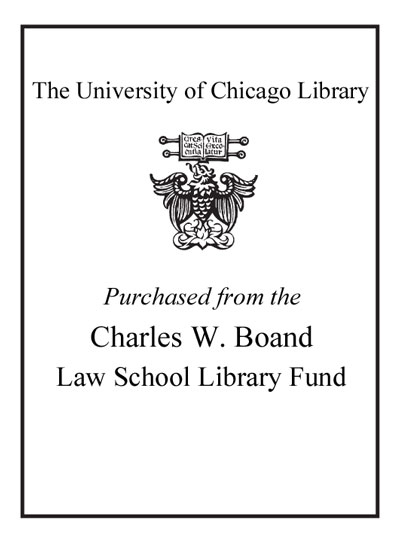Review by Choice Review
Popkin (Indiana Univ., School of Law) analyzes the evolution of "the public face of the judiciary," judicial opinions. The central task of this book is to interpret how judges present their opinions, focusing upon the importance of political goals, legal culture, and institutional and individual stylistic considerations. Chapter 1 examines the development of judicial opinion in England. Chapters 2-4 survey the maturation of judicial opinion writing in the US from an institutional perspective. The critique of the American tradition's "antecedents," including Montesquieu, Blackstone, early state constitutions, and the Constitutional Convention, is most helpful. Chapters 5 and 6 assess "contemporary [American] judicial practice" regarding opinions. The most troublesome aspect of the work is the author's remedy for the decline of the efficacy of judicial opinions. Popkin encourages judges to adopt a "greater use of the personal voice and exploratory tone" in writing their opinions; however, his suggestion could potentially promote more judicial activism and a departure from traditional sources of the law. This work constitutes a perspicacious guide to recovering the vitality and importance of judicial opinions, and it offers recommendations for the proper mission of judges within a changing legal culture. Summing Up: Recommended. Upper-division undergraduate, graduate, research, and professional collections. H. L. Cheek Jr. Brewton-Parker College
Copyright American Library Association, used with permission.
Review by Choice Review

